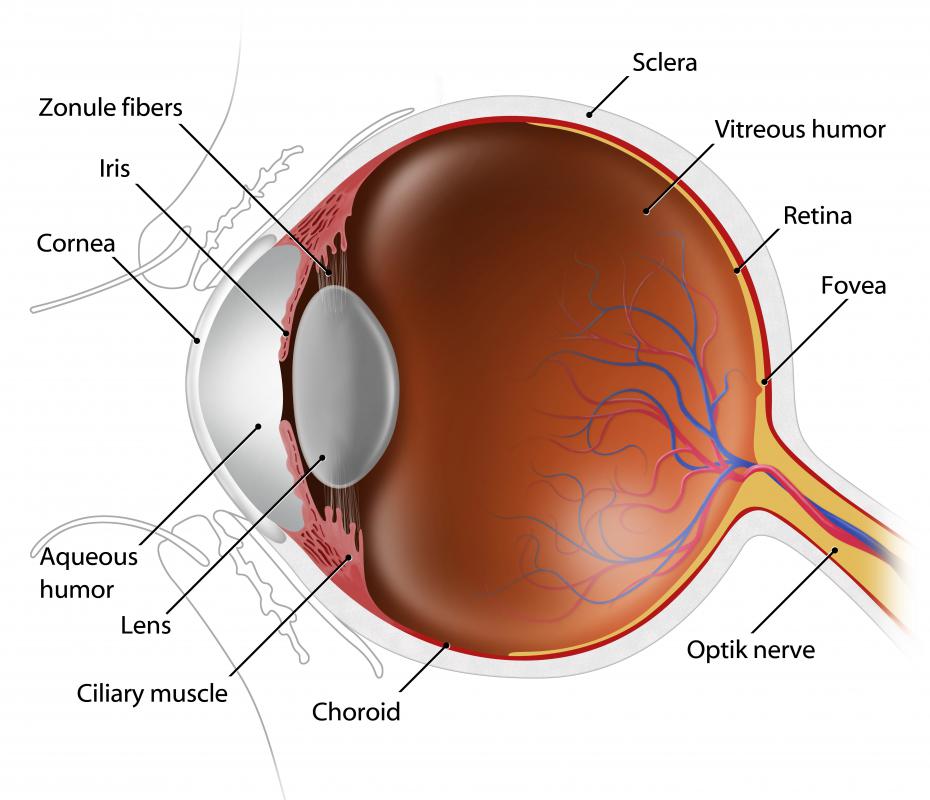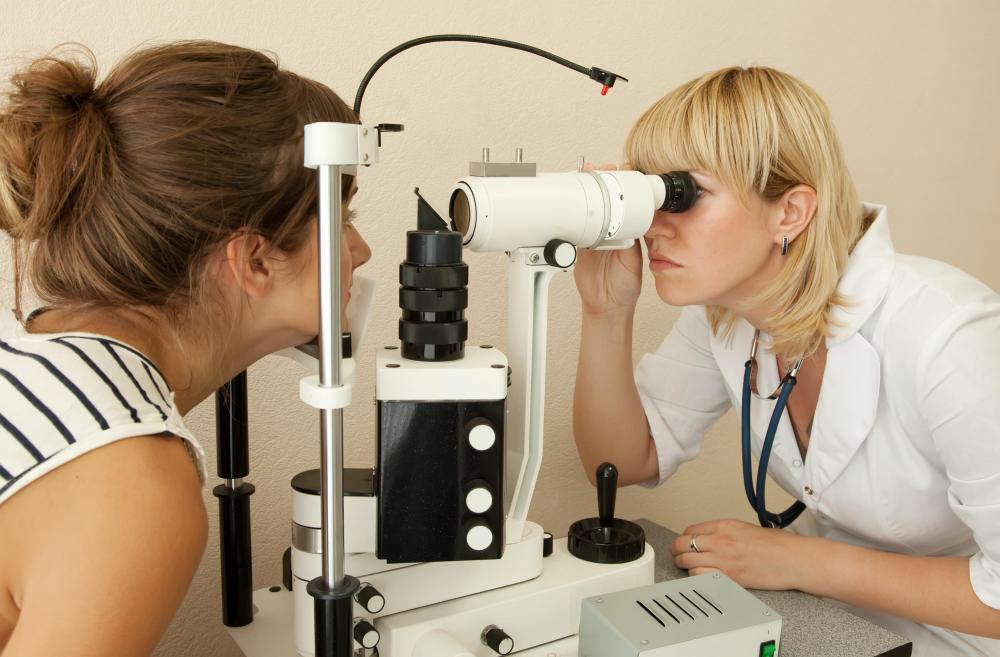At WiseGEEK, we're committed to delivering accurate, trustworthy information. Our expert-authored content is rigorously fact-checked and sourced from credible authorities. Discover how we uphold the highest standards in providing you with reliable knowledge.
How Do I Recover from Vitreoretinal Surgery?
Recovery from vitreoretinal surgery requires remaining in a facedown position from several days to several weeks after the operation while the eye heals. This poses a challenge for most patients, who must sleep, eat, and spend at least 23 hours a day with their heads facing downward. Some discomfort and swelling might occur during the recovery period, along with excessive tearing.
The process used to perform vitreoretinal surgery makes it necessary for the patient to keep the face down after the procedure. A surgeon removes the vitreous fluid, a clear material with the consistency of jelly, from the eye to repair holes or tears in the macula, a region in the back of the eye responsible for sharp vision. He or she replaces the fluid with a bubble of gas that acts as a bandage during the healing process. This bubble puts pressure on the surgical area to keep holes at the back of the eye closed. The gas bubble eventually dissolves and is replaces by new vitreous fluid.

Surgeons usually advise patients to expect boredom and stress from remaining facedown after vitreoretinal surgery. Patients might want to prepare food ahead of time so it can be quickly reheated. Any chores that need attention, such as laundry or paying bills, should also be handled before surgery. Patients can reduce the risk of falls by clearing paths in the house.

Most patients find it helpful to set up their homes for convenience before vitreoretinal surgery. Tissues, water bottles, and other necessities can be arranged close at hand. A low table or tray might be used for meals or playing board games to stave off boredom. Clothing that is easy to put on and take off, such as tops that button, might make dressing easier.

Equipment for use at home or while traveling might ease the discomfort of keeping the head down during recovery. Body support devices with a face cushion are typically used while sleeping. The face cushion helps during the day while playing games, reading, or watching movies. This device also supports the head while eating and drinking. Some equipment comes with mirrors that provide a 180-degree view of a room.

Vitreoretinal surgery might be performed for any disorder that affects the fluid in the eye, including retinal detachment, glaucoma, diabetic retinopathy, and tears or holes in the macula. The first signs of a disorder typically include blurred vision and a loss of peripheral vision if the retina becomes detached. Flashes of light or floating images in the field of vision also represent signs of vitreous fluid disorders.
AS FEATURED ON:
AS FEATURED ON:
















Discuss this Article
Post your comments